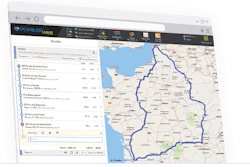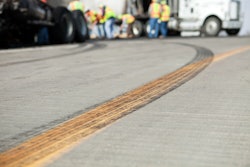Most ELD and fleet management systems are able to report the fuel efficiency data of tractors and the impact of certain driver behaviors like speeding and throttle usage. The data comes directly from the engine’s electronic control module (ECM), but may not be enough to assess the before-and-after results of fuel-saving technologies.
Different variables need to be isolated to attribute any improvements seen in fuel efficiency to a technology, such as a fuel additive, versus a change in driver behaviors, topography, wind speed and direction, among other possibilities.
To test the efficacy of a new technology, a fleet could simply compare the average mpg of a truck for the same time periods before and after the new technology was deployed. The results may not be convincing if all conditions were not equal, which they rarely are. Studies have shown, for instance, that up to 30% of fuel consumption can be attributed to driver behaviors.
In December 2020, Andy Hedrick developed and patented a business intelligence software, Fleet Compete, that ingests fuel efficiency data from fleet management systems. The cloud-based software is one of the products of his company, Trucking Tower, and gives users a before-and-after analysis for testing new technology by diagnosing fuel economy gains based on the engine load.
The software also allows fleets to benchmark and compare the fuel results of specific types of equipment they use against other fleets who are the top performers in the community by gathering fuel efficiency data anonymously from users, he explained.
Currently, the Fleet Complete platform is tied into ELD and fleet management systems that motor carrier clients use from Keep Truckin, Samsara and Geotab. As the community grows, Hedrick said fleets will have data insights into what technology is having the greatest impact on fuel efficiency. The software will be able to measure the savings fleets are getting from different technologies such as trailer fairings, oil bypass systems, fuel additives and alternative fuels such as biodiesel or natural gas.










